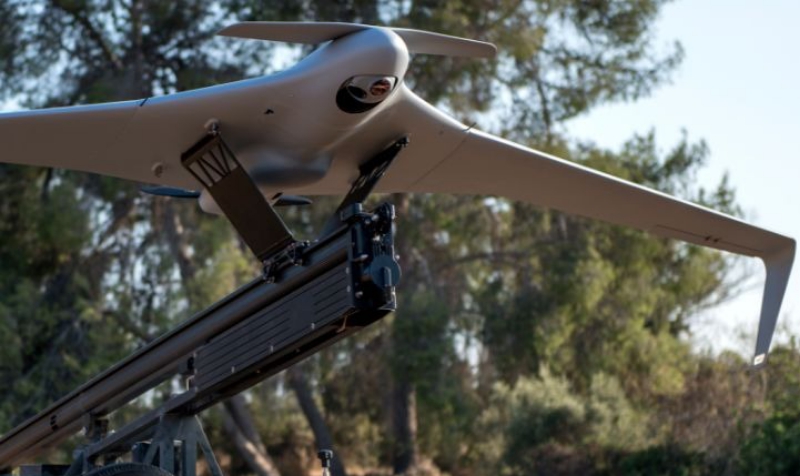Israel’s Defense Ministry on Sunday suspended the export licenses of three senior officials from an aircraft manufacturer suspected of testing one of its “suicide drones” against the Armenian military in 2017 at the behest of its client Azerbaijan in violation of Israeli law.
Many details of the case remain under a court-issued gag order.
The publicly traded company, Aeronautics Ltd., informed the Tel Aviv Stock Exchange of the development on Sunday.
The Defense Ministry later confirmed that it was blocking the export licenses of three senior officials in the company — CEO Amos Matan, deputy CEO Meir Rizmovitch and a third, unnamed, employee — pending a formal hearing.
“They will not be able to work in marketing or defense exports with outside officials,” the company said.
This suspension will remain in effect until a verdict is rendered in the case against them.
The announcement came two weeks after the Rafael defense contractor agreed to purchase Aeronautics for NIS 850 million ($231.7 million).
In August 2018, the State’s Attorney’s Office announced that it intended to indict Matan, Rizmovitch and other senior officials in the company in connection with the alleged illegal live-fire test of its Orbiter 1K model unmanned aerial vehicle.
A statement announcing the plans to summon the company members said they were suspected of fraud as well as other violations of the Defense Export Control Law, which protects against unauthorized exports of defense intelligence and equipment.
In a statement responding to the hearing summonses, Aeronautics said: “We are convinced that after we first present our position at the hearing, the State Prosecutor’s Office will reach an informed decision that there is no reason to put the company or any of its officers in court and will order the case closed.”
In August 2017, the reports emerged that the company was suspected of using the Orbiter 1K kamikaze drone to attack Armenian forces in the disputed Nagorno-Karabakh region during a demonstration for Azeri officials. A copy of the complaint was first leaked to the Maariv newspaper.
The Israel Police’s Unit of International Crime Investigations, the Defense Ministry’s investigation unit and the State Attorney’s Office launched an investigation into Aeronautics’s conduct, but a gag order has been placed over many of its details.
With the launch of the probe, the company said it had been barred from selling the Orbiter 1K model to its “central client ‘A’” — not identifying the country by its name, per the gag order.
This ban remains in place as of Sunday.
Aeronautics is accused of sending a team to the Azerbaijan capital Baku to demonstrate the Orbiter 1K unmanned aerial vehicle, which can be outfitted with a small explosive payload of 2.2 to 4.4 pounds (one to two kilograms) and flown into an enemy target on a “suicide” mission.
According to the complaint against the company, while demonstrating the kamikaze drone to the Azerbaijani military in July 2017, the company was asked to carry out a live-fire test of the system against an Armenian military position. The two countries have been been fighting sporadically for nearly 25 years.
Such a test would be illegal under Israeli law, as it would require a seldom-granted permit to carry out demonstrations against real targets. In this case, Aeronautics Defense Systems would have been even less likely to receive such a permit, as Israel does not consider Armenia to be an enemy state.
The two Israelis operating the two Orbiter 1K drones during the test refused to carry out the attack, despite threats from their superiors, Maariv reported.
Two higher-ranking members of the Aeronautics Defense Systems delegation in Baku then attempted to carry out the Azerbaijani request, but, lacking the necessary experience, did not directly hit their targets, the report said.
The Yavneh-based Aeronautics denied the assertion when reports first came out, saying it “has never carried out a demonstration against live targets, including in this case.”
Aeronautics Defense Systems, which specializes in UAV technology, manufactures other drones that are similar to the Orbiter 1K but lack its attack capabilities and can only be used for reconnaissance. Azad Systems, a subsidiary of Aeronautics Defense Systems that is run by the Azerbaijani defense ministry, currently manufactures at least two models of the Orbiter platform. Azerbaijani news outlets have reported that the country has its own Orbiter kamikaze drones as well.
In 2016, Azerbaijan used another Israeli kamikaze drone, an Israeli Aerospace Industries Harop-model, in an attack on a bus that killed seven Armenians.
Azerbaijan is one of the largest importers of Israeli military equipment and is seen as an important ally to the Jewish state, given that it shares a border with Israel’s nemesis, Iran, and provides between 25 to 40 percent of Israel’s oil. In 2016, the country’s president, Ilham Aliyev, revealed Azerbaijan had purchased some $5 billion worth of weapons and defense systems from Israel.
Israel has come under internal criticism for its cooperation with Azerbaijan over the country’s reported human rights violations, despite it being one of the few majority-Muslim countries with which Israel enjoys an openly positive relationship.
Source: Times of Israel

